Abstract
Three classes of 5-fluorpyrimidine-resistant mutants of Diplococcus pneumoniae have been characterized. The mutant strain upp is resistant to high concentrations of the fluoropyrimidine bases fluorouracil (FU) and fluorocytosine (FC); strain upp has a defective uridine monophosphate pyrophosphorylase. The mutant strain udk is resistant to inhibition by fluorouridine (FUR) and exhibits defective uridine kinase activity. The mutant strain fun is resistant to inhibition by the nucleosides fluorodeoxyuridine, fluorodeoxycytidine, and FUR, but shows normal activity for all pyrimidine pathway enzymes tested. This strain may be defective in the activity of a transport system that governs the cellular uptake of pyrimidine ribo- and deoxyribonucleosides. Biochemical studies on wild-type and fluoropyrimidine-resistant pneumococci are discussed with respect to the transport and early metabolism of preformed pyrimidine precursors by this organism.
Full text
PDF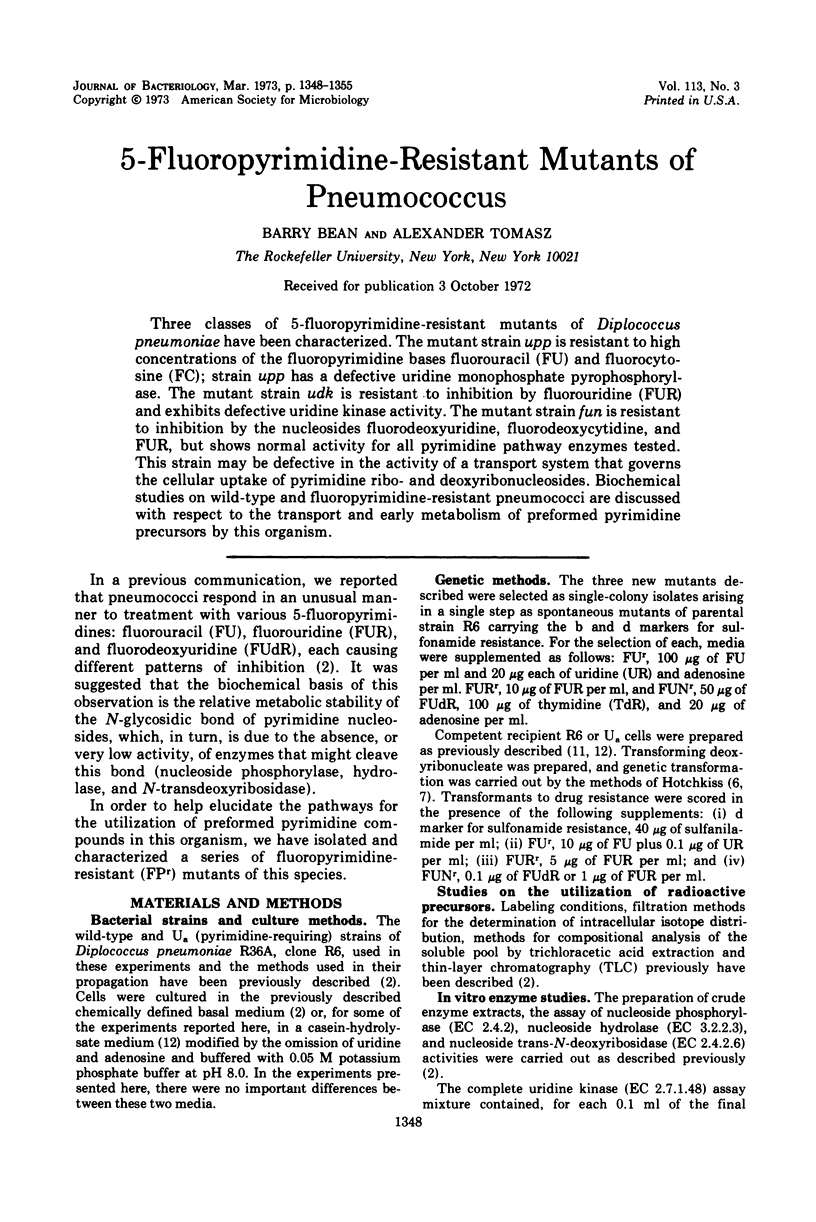
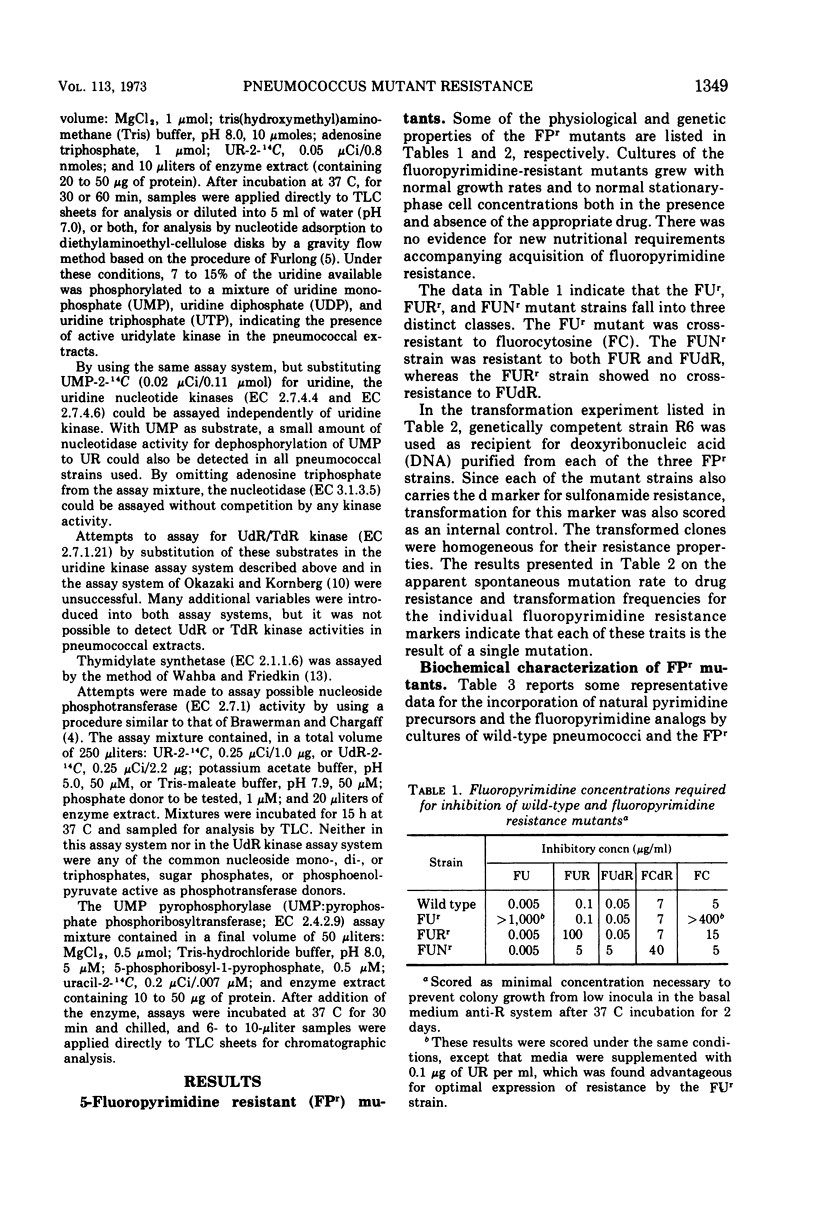
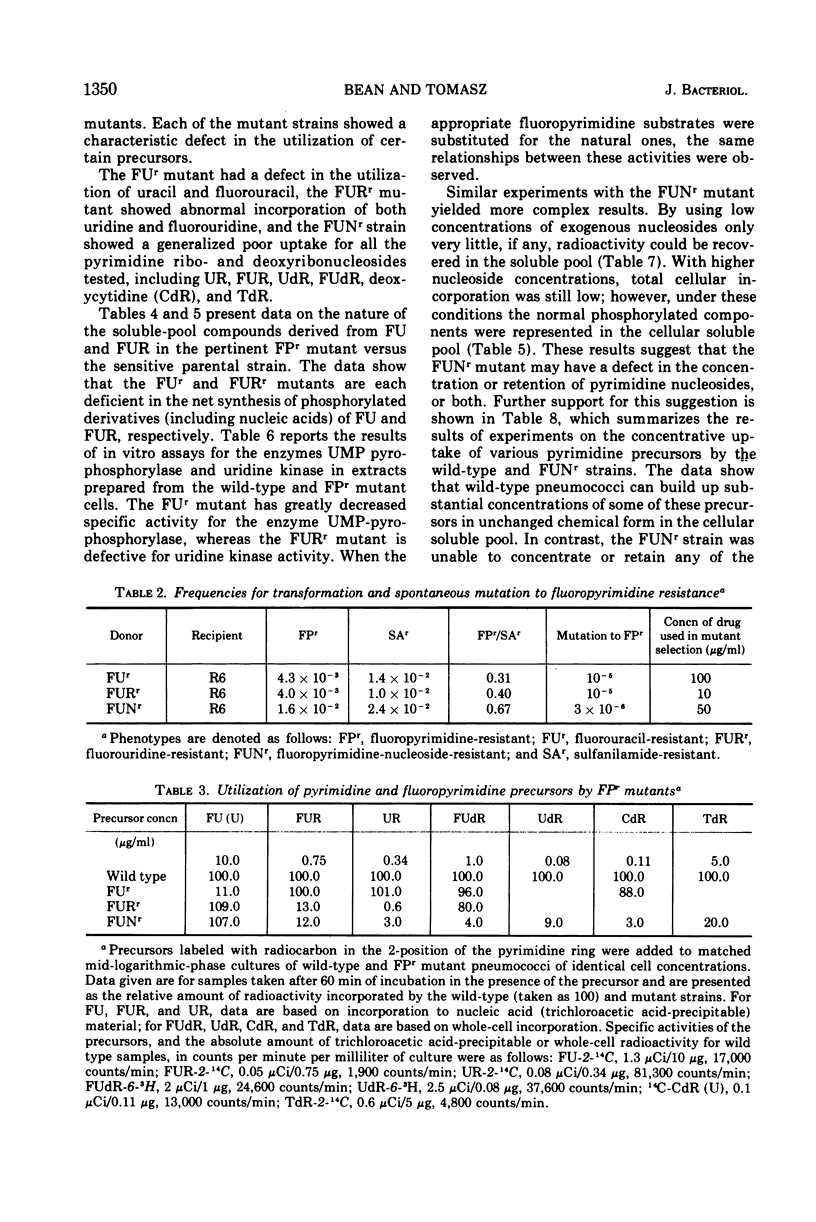
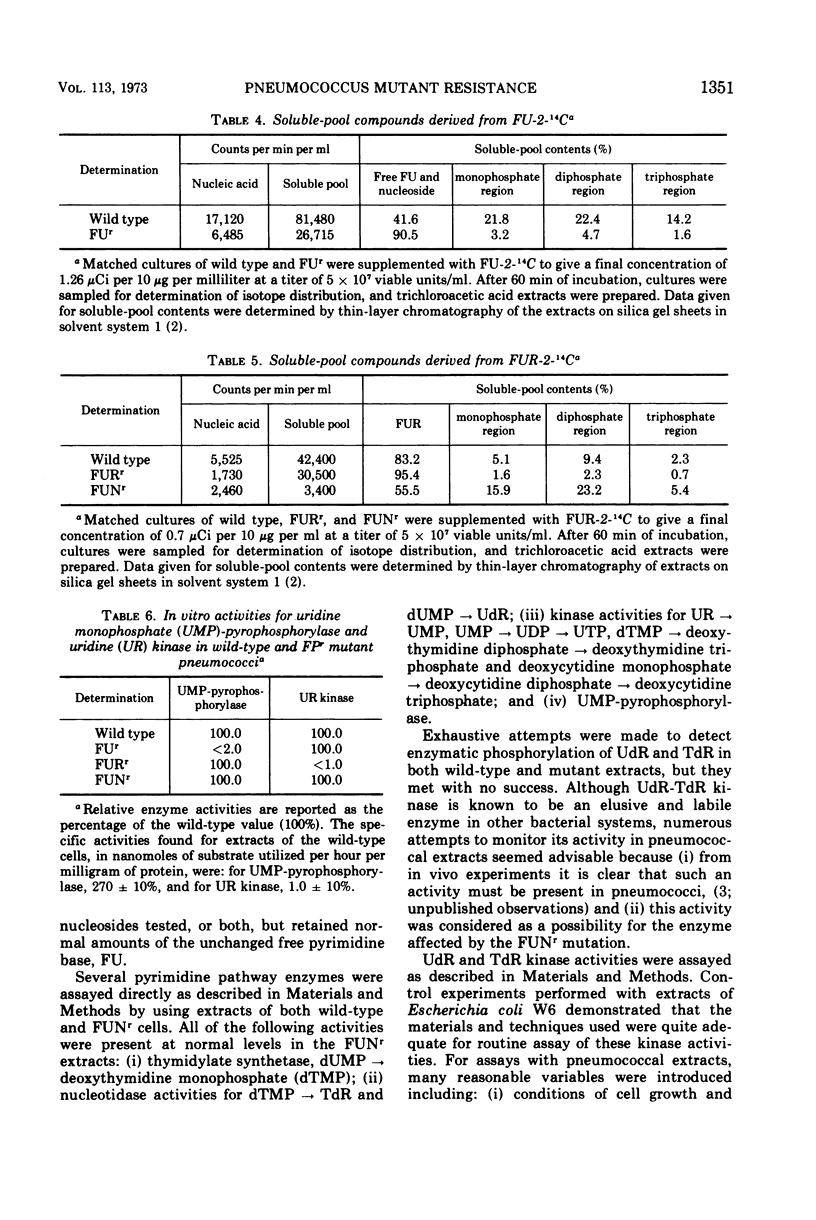
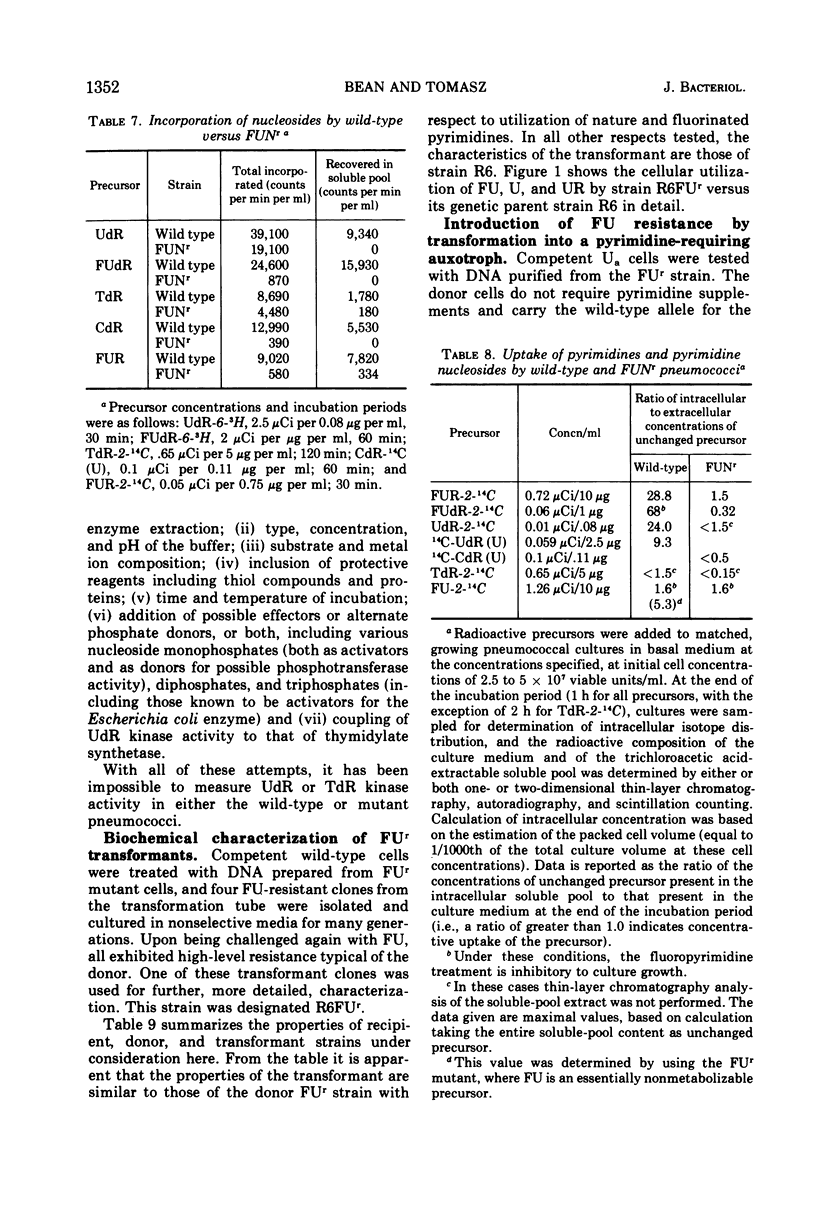

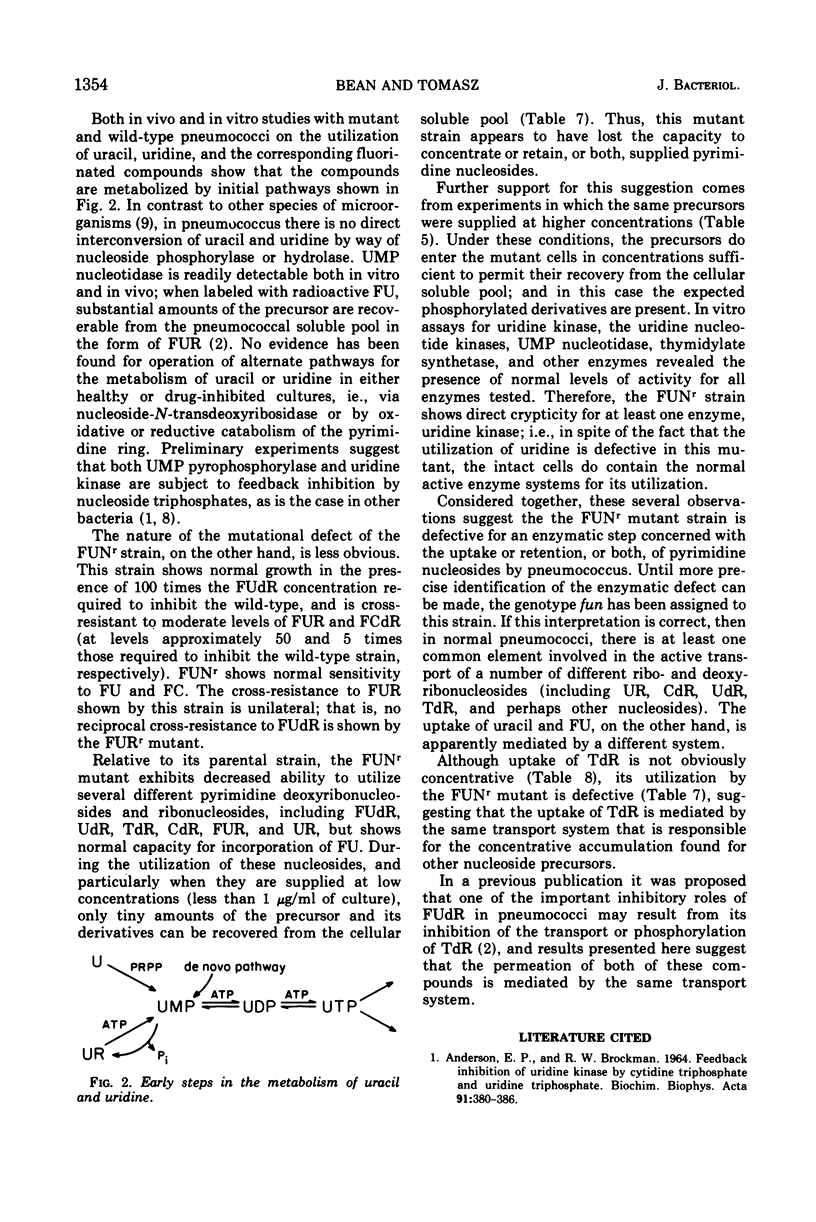
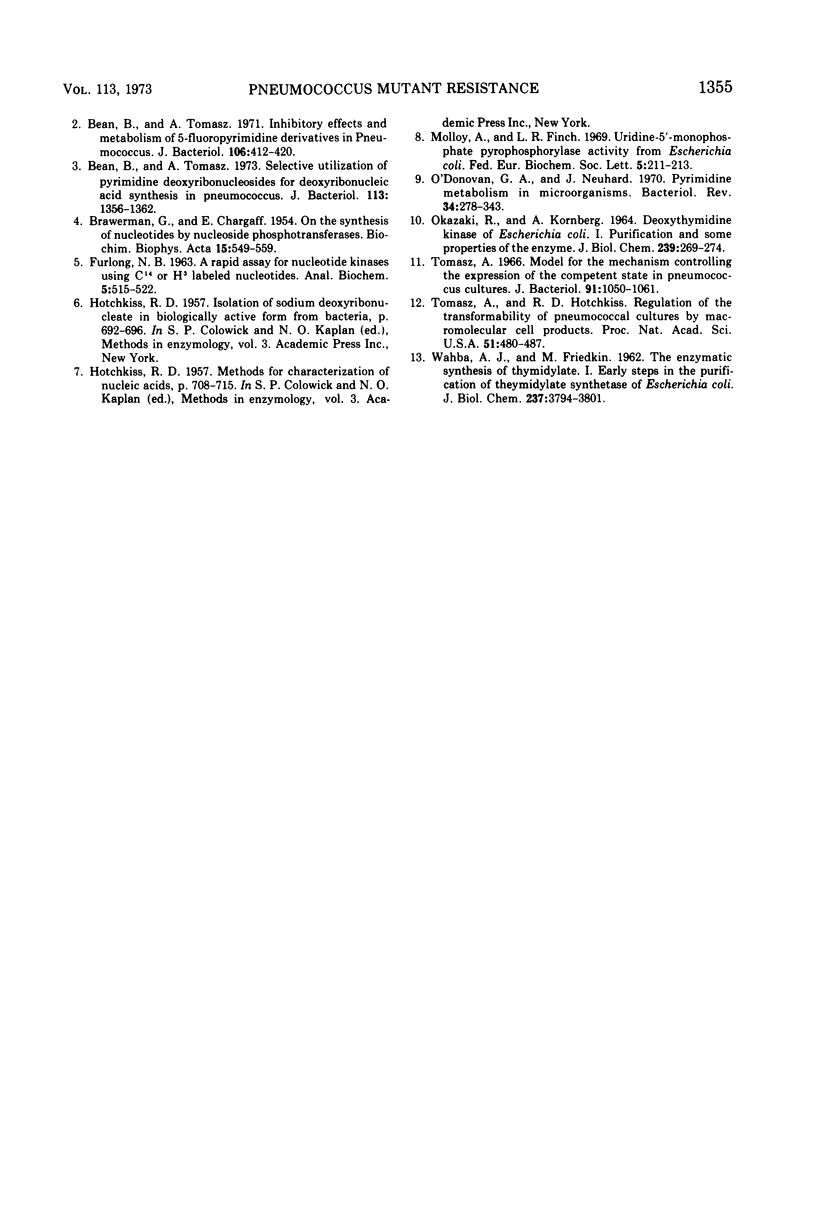
Selected References
These references are in PubMed. This may not be the complete list of references from this article.
- ANDERSON E. P., BROCKMAN R. W. FEEDBACK INHIBITION OF URIDINE KINASE BY CYTIDINE TRIPHOSPHATE AND URIDINE TRIPHOSPHATE. Biochim Biophys Acta. 1964 Nov 15;91:380–386. doi: 10.1016/0926-6550(64)90067-2. [DOI] [PubMed] [Google Scholar]
- BRAWERMAN G., CHARGAFF E. On the synthesis of nucleotides by nucleoside phosphotransferases. Biochim Biophys Acta. 1954 Dec;15(4):549–559. doi: 10.1016/0006-3002(54)90013-x. [DOI] [PubMed] [Google Scholar]
- Bean B., Tomasz A. Inhibitory effects and metabolism of 5-fluoropyrimidine derivatives in pneumococcus. J Bacteriol. 1971 May;106(2):412–420. doi: 10.1128/jb.106.2.412-420.1971. [DOI] [PMC free article] [PubMed] [Google Scholar]
- Bean B., Tomasz A. Selective utilization of pyrimidine deoxyribonucleosides for deoxyribonucleic acid synthesis in pneumococcus. J Bacteriol. 1973 Mar;113(3):1356–1362. doi: 10.1128/jb.113.3.1356-1362.1973. [DOI] [PMC free article] [PubMed] [Google Scholar]
- FURLONG N. B. A rapid assay for nucleotide kinases using C14-or H3-labeled nucleotides. Anal Biochem. 1963 Jun;5:515–522. doi: 10.1016/0003-2697(63)90071-x. [DOI] [PubMed] [Google Scholar]
- Molloy A., Finch L. R. Uridine-5'-monophosphate pyrophosphorylase activity from Escherichia coli. FEBS Lett. 1969 Nov 12;5(3):211–213. doi: 10.1016/0014-5793(69)80334-0. [DOI] [PubMed] [Google Scholar]
- O'Donovan G. A., Neuhard J. Pyrimidine metabolism in microorganisms. Bacteriol Rev. 1970 Sep;34(3):278–343. doi: 10.1128/br.34.3.278-343.1970. [DOI] [PMC free article] [PubMed] [Google Scholar]
- OKAZAKI R., KORNBERG A. DEOXYTHYMIDINE KINASE OF ESCHERICHIA COLI. I. PURIFICATION AND SOME PROPERTIES OF THE ENZYME. J Biol Chem. 1964 Jan;239:269–274. [PubMed] [Google Scholar]
- Tomasz A. Model for the mechanism controlling the expression of competent state in Pneumococcus cultures. J Bacteriol. 1966 Mar;91(3):1050–1061. doi: 10.1128/jb.91.3.1050-1061.1966. [DOI] [PMC free article] [PubMed] [Google Scholar]
- WAHBA A. J., FRIEDKIN M. The enzymatic synthesis of thymidylate. I. Early steps in the purification of thymidylate synthetase of Escherichia coli. J Biol Chem. 1962 Dec;237:3794–3801. [PubMed] [Google Scholar]


